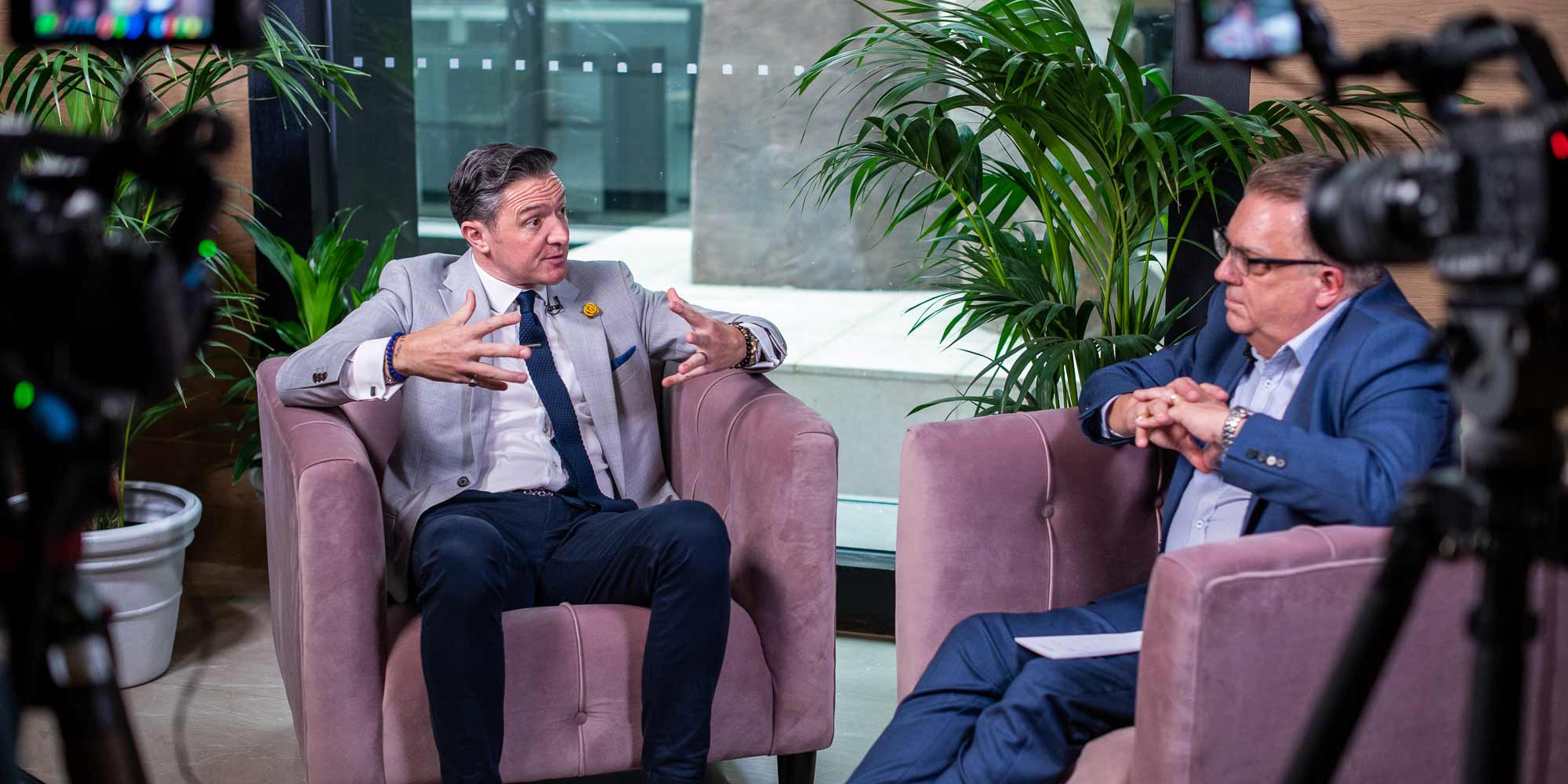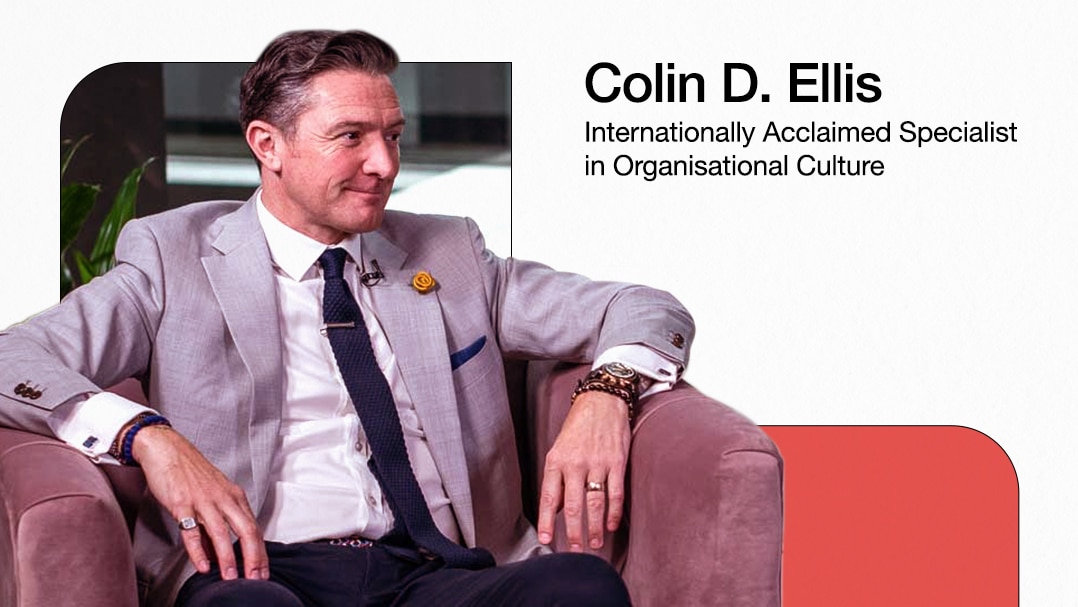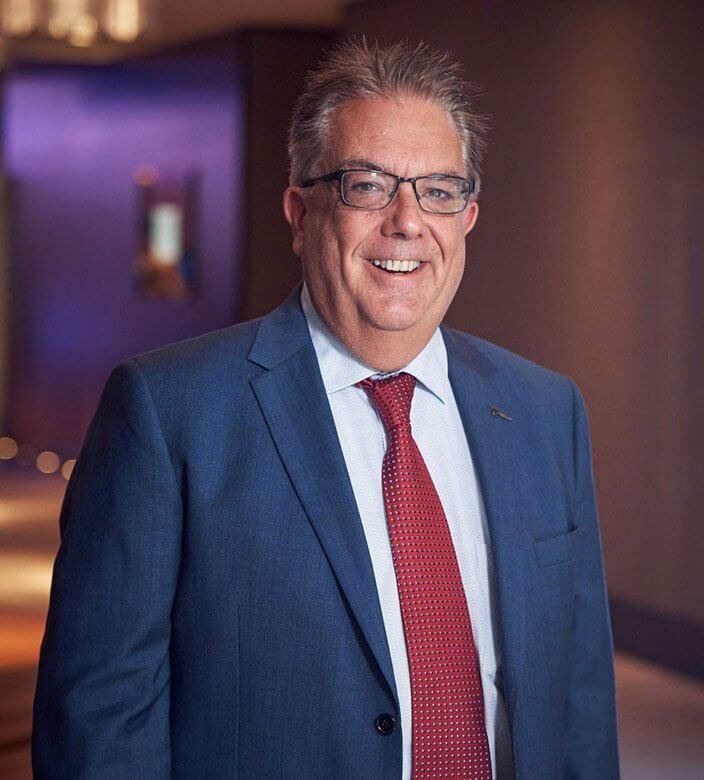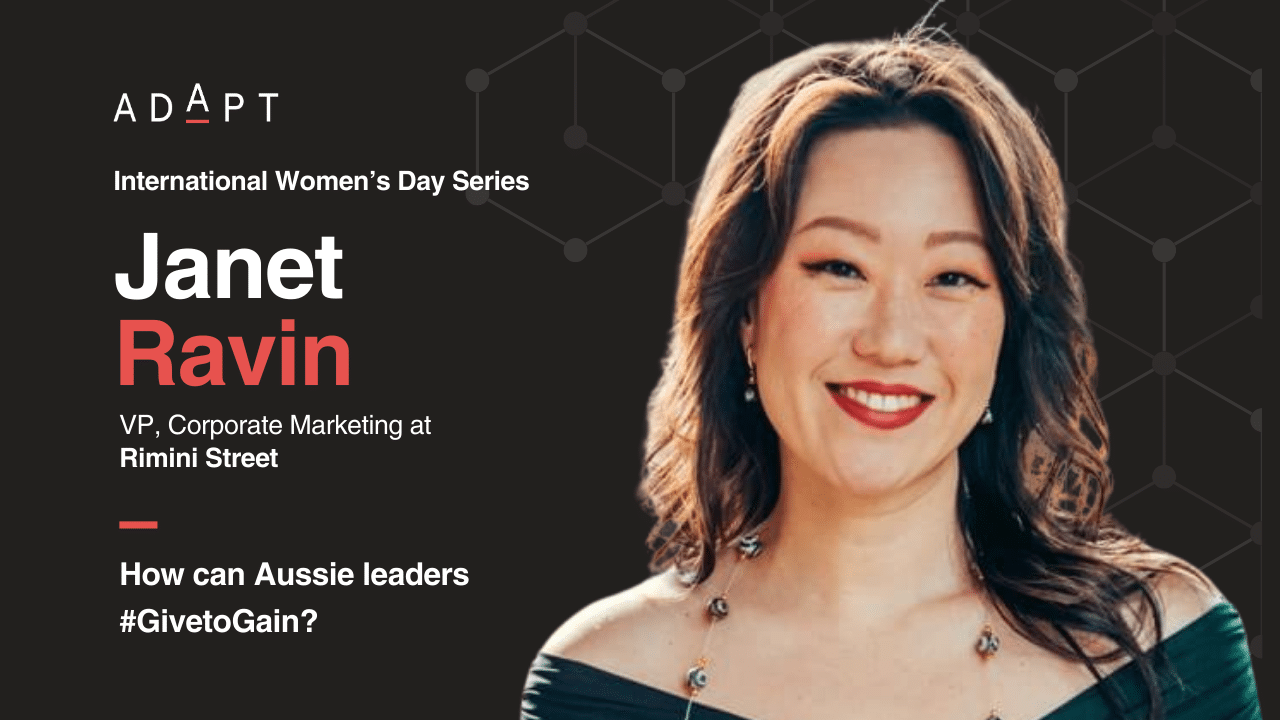As an internationally acclaimed specialist in organisational culture, Colin Ellis helps organisations and individuals change the way they get things done.
Speaking with ADAPT’s Director of Strategic Research at ADAPT’s CIO Edge, Colin shares his expertise in practical ways to transform as a business leader with the aim of creating an organisational culture of success. To him, feedback and incremental change are key.
Matt Boon:
So, Colin, we’re here at the ADAPT CIO Edge, we’ve been talking a lot today about this concept of the 12 competencies that business leaders need to really succeed on some of the strategic priorities within an organisation and beyond that. And you’ve done a lot of work with senior leaders, you do a lot of keynotes, you do a lot of workshops, that thing. I wanted to talk to you a little bit today about what transforms as a business leader.
We talk a lot about the transformation from a digital point of view and a technology point of view, but also from a business leadership perspective. It’s increasingly important I think for the leaders of organisations in Australia to actually transform themselves as business leaders, and, more importantly, I think their overall leadership styles. So I’d love got to get your thoughts on, if you think about this concept of transforming as a business leader, what’s it mean to you?
Colin Ellis:
Well, the first thing that I want to pick up on, Matt, is the fact that leadership doesn’t come with the job. It should do, but it doesn’t. Leadership is a choice that people can make a difference in people’s lives. And so, a first part of the transformation process is recognising that you have management responsibilities, but really to motivate and inspire a group of people, leadership is where it’s at. And what that requires is a number of things. It requires that they’re highly self-aware, so they understand their strengths, their opportunities for improvement, because as I would often say, if you think you’re the smartest person in the room, you’re in the wrong room. So what are those things that you don’t know? How well do you understand your own style, your own personality? How much time are you putting on relationship building?
One of the things that are dear to my heart is, how much opportunity are you providing for the team to define the culture that they need so that you can be collectively successful?”
All of those things require a transformation in one shape or form. And it’s really down to the manager or the leader to say, well, I’ve got the guts for this. It’s not something that they can generally do in the office, it’s something that they have to work really hard at because what we’re fundamentally talking about, of course, is behaviour change.
Matt Boon:
Exactly, and really I think when you think about that behaviour change concept, that can be one of the most difficult things anyone can do, to really change themselves in terms of what’s built into them. So when you think about that, you picked on a couple of things, but how do we actually do it?

Colin Ellis:
Well, I had a lot of help from Jack Daniels. How do we do it? Well, feedback is important, Matt, and one of the things that I and my team used to do, we used to ask ourselves what’s one thing that we can think about, what’s one thing to think about. So gaining the feedback is important, then picking those areas within the way that you operate, and say these are the most unproductive way.
I hear a lot of people talking about technology and the fact that we’re not leveraging it for good. I see so many people who are distracted, Matt, and it’s like, what are you doing to change the routines that you have? The cues generally will never change, someone will always send you an email, a text message, a Slack message, whatever it is, but you don’t have to go and pick it up. You have to develop a new routine, such that you get the reward, and that’s Charles Duhigg’s model around behaviour change. And the reward is, you’ve got more productive time to do things, so really recognising those areas within the way that you do things that require change, and then picking one at a time.
I always say if you’ve got 10 things on your list, you’ll do one, whereas if you’ve got three things on your list, there’s a good chance you can do three. Pick one, fix it, pick another, fix it and not let things get in the way.”
Matt Boon:
Okay, so take more of a step-based approach to transformation, rather than thinking, I’m just going to make this big bang whole load of changes.
Colin Ellis:
I’m one of those people that’s against New Year’s resolutions. If people are like, right, come January the 1st, I’m going to the gym, I’m creating a new diet, boom, done. It’s like, it doesn’t work like that, because transformation by nature is evolutionary. Pick one thing, change, pick another, change, pick another, change.
I was 50 last year. I never want to get to the point where I stop transforming who I am, what I’m about, and that’s being open to new ideas, new ways of thinking, new ways of being challenged myself. But then establishing new routines. People often use age for a barrier, but it’s really down to commitment and desire.
Matt Boon:
No, that’s a good point. When we look at the organisational change in general, so we transform as the business leader, so for leaders to actually transform, how important is that if they fundamentally want their organisation and their people to come along with them and change with them? Because you talked about, collaboration, whether it’s Slack, teams, whatever. And we throw things down at people, but we need to give them the reasons, if you like, I think is what you’re saying, to actually drive that change, and it starts with us.
Colin Ellis:
It does, and so what leaders have to do is role model what they expect of other people.
There’s this real dichotomy where leaders don’t own the culture yet they have the power to destroy it.”
I have worked for organisation cultures were the leaders act and behave in a way that’s unethical or undermines what we’re trying to achieve. So people have to really recognise, leaders have to recognise, that transformation process starts with them, and it’s up to them to set the tone for what they expect from others. And it only takes one emotional outburst to really destroy the trust that people have built-in leadership. It only takes one decision not to include someone. It only takes one secret project to really upset the culture that we need in order to deliver the strategic intent.
Matt Boon:
I like that, so leaders don’t own the culture, but they have the power to destroy it.
Colin Ellis:
Absolutely.
Matt Boon:
Fantastic Colin, thank you very much.
Colin Ellis:
Thanks, Matt.
 WATCH
06:00
WATCH
06:00





























